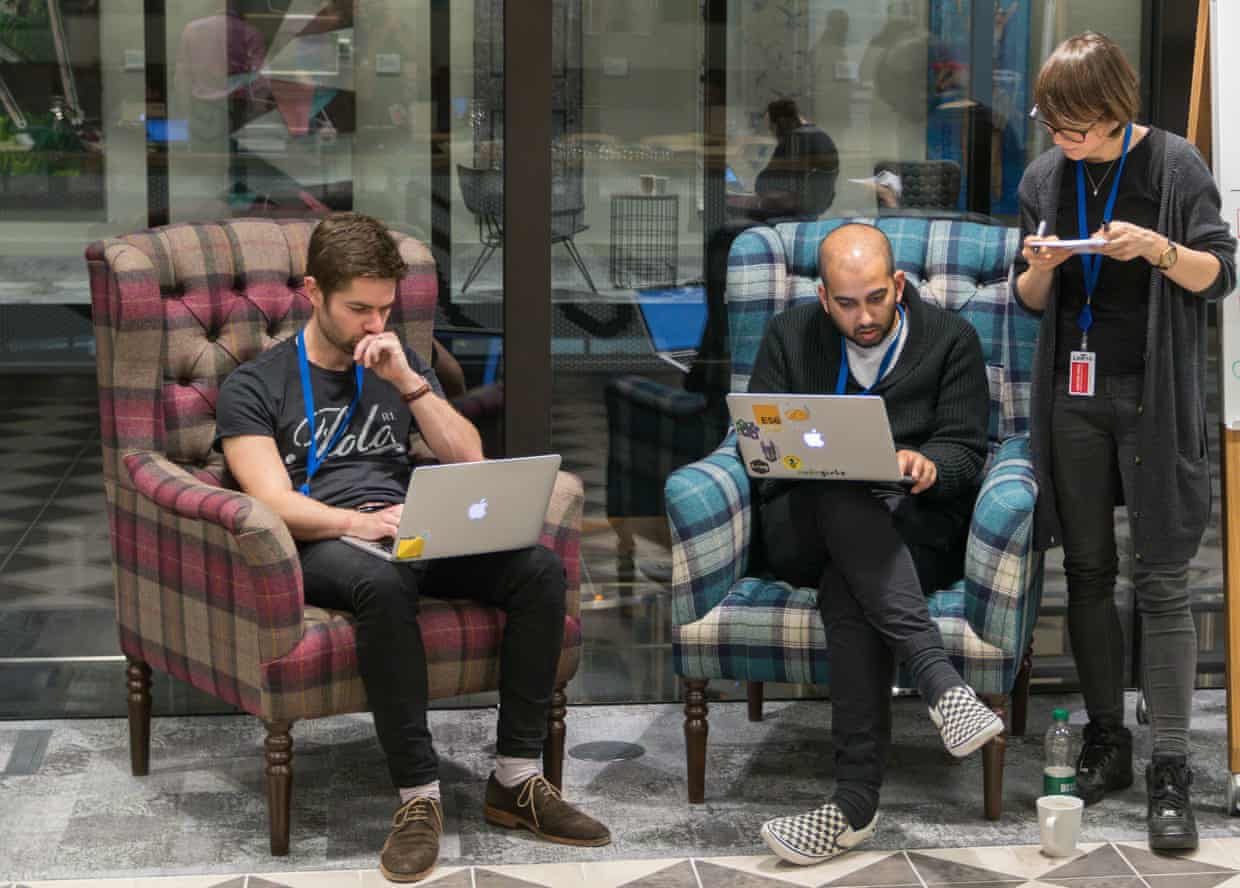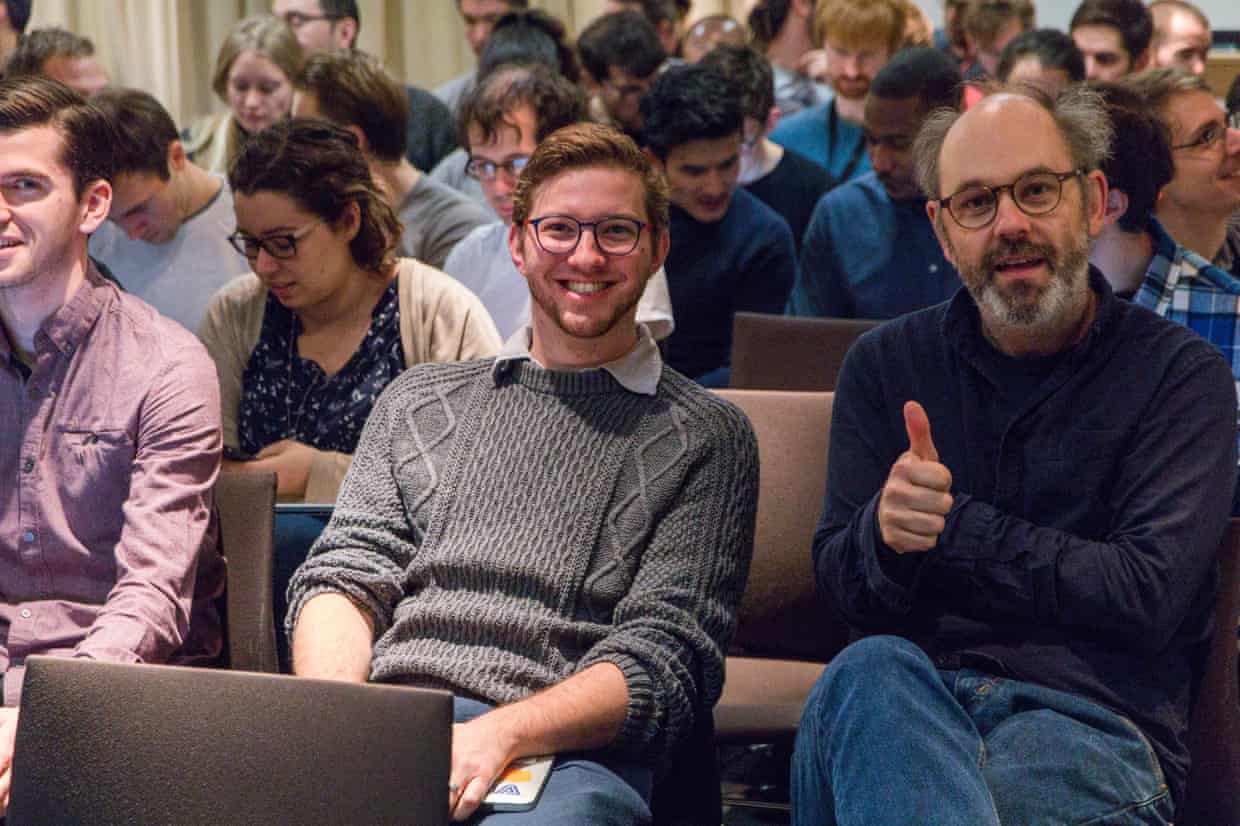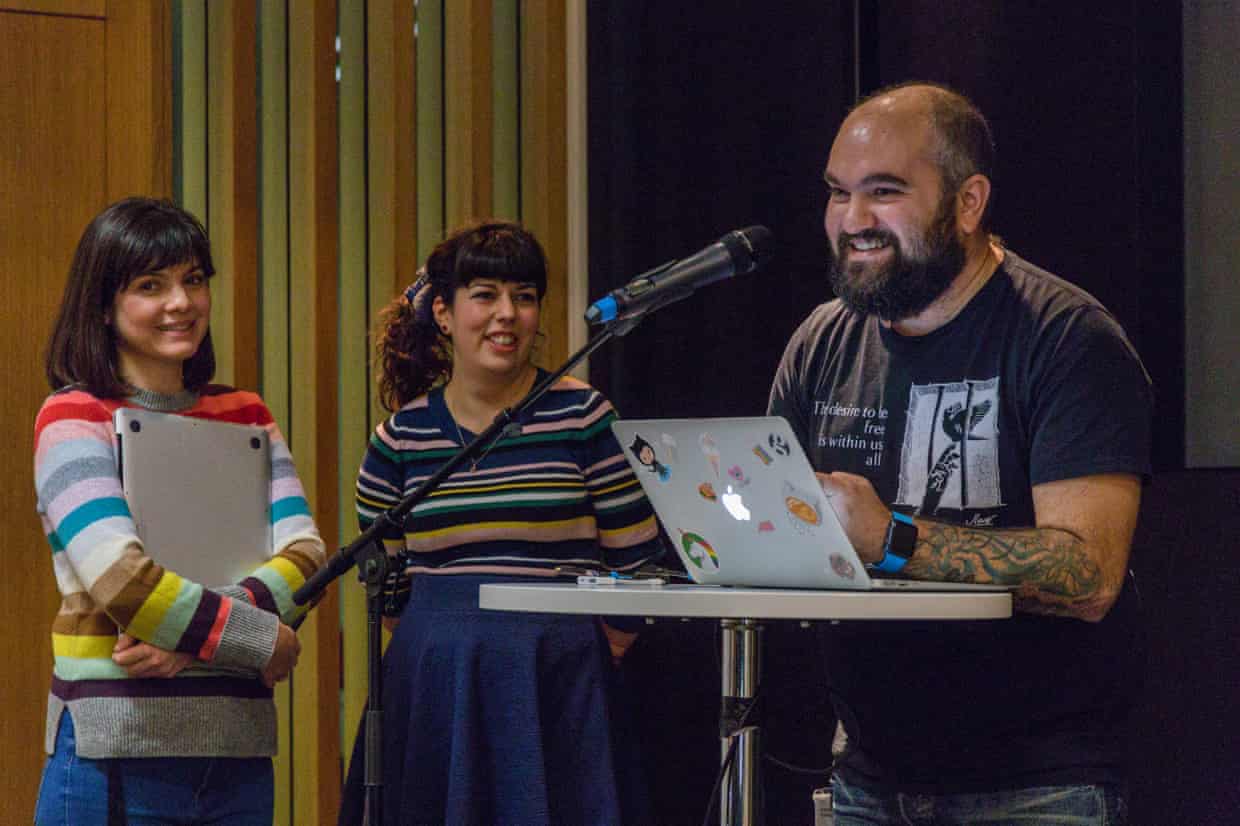This year we invited two developers, Dina Hafez and Marty Stepien from Codebar, to join us at our hack day as part of our commitment to support the tech community.
On 18-19 October we had the opportunity to attend our first ever hackathon: the Guardian Hack Day.
This is a two day event which encourages Guardian developers, designers and journalists to work with people outside their regular teams and day-to-day responsibilities.
Even though it’s usually an internal event, this time they offered two extra spots for the members of Codebar community - a non profit that supports women, LGBTQ+ and ethnic minorities learning how to code in order to improve diversity in the tech industry. And together we had a chance to unleash our inner hacker and build something amazing from scratch with the Guardian team!
But how can you prepare yourself for the Guardian Hack Days?
Survival Tip #1 - Don’t panic
We’re both career-changers coming from non-technical backgrounds and this was our first hackathon ever. Ever. People say all sorts of things about their first hackathons.
Fact is you don’t have to be a coding master to contribute in a meaningful way. The event is all about learning and having fun and you’ll be surrounded by experienced coders and designers willing to show you some new tricks and technologies. Everyone was once a first-timer, they’re going to help you out.

Survival Tip #2 - Talk to everyone
The event started with a team-matching session, where we had the chance to talk and meet everyone. We were sent a list of all the projects before the event, so it’s worth doing a little bit of heavy lifting at home and pick up some topics you’re most interested in.
Be friendly, introduce yourself and stay open-minded, some projects just have scary names. If you haven’t worked with the technology before, this could be the best opportunity to learn about it.
Survival Tip #3 - Dream big and collaborate
Once you’re teamed-up, you’re going to discuss the project. Don’t be afraid to talk to others about your ideas because you’re inexperienced or not skilled enough. You have to start creating dots before you can connect them.
You may suggest an entirely new way to attack a problem that no-one in your team considered before. Remember that your non-technical experiences are not handicaps, they’re assets.

Survival Tip #4 - It’s OK to chop and change
What if you realise midstream you cannot contribute to the project in a way you wished? This happened to Dina. Projects evolve, ideas change, and final team needs can shift a lot. There might be another hack you can add more value to - and it’s completely OK to change your team later on. Just speak up and ask organisers for help in facilitating your transition. It is never too late for it, hackathons are for solving problems together and learning new skills, and people often go around to work with other teams during the event.

Survival Tip #5 - Prioritising is the priority
Hack Days are a race against the clock. It can be difficult to decide with your team on the minimal viable product, but time is limited and you need to have project functional enough to be able to present it at the end of the event. Remember to schedule some extra time to prepare for the final presentation.
Survival Tip #6 - Pitch perfect
This can be a scary part - each team has just two minutes to present their hack. And if you exceed it - you’re going to hear a super loud air horn and be stopped in the middle of your sentence.
Believe us, you don’t want to hear it. So if you haven’t practiced this kind of speed presenting before (we haven’t), do it with your team. Have a clear narrative and choose the slides that will have the maximum impact.
Make it interesting and engaging (having some funny gifs definitely won’t hurt). This time we had 30 presentations, so it’s definitely worth having some element of surprise to stand out.

Survival Tip #7 - Set your goals straight
Hackathons aren’t really about winning prizes (no matter how tempting it is to win ‘The Most Ambitious Failure’ prize). Hackathons are for learning about new technologies, new frameworks, new APIs, learning how to work on a tight deadline, how to present your work on stage and how to work within a diverse team.
You’ll get to meet people you perhaps wouldn’t have a chance to meet otherwise. It’s a fantastic place to share ideas, learn from others, and build connections.
In short: Hack Days are great.
